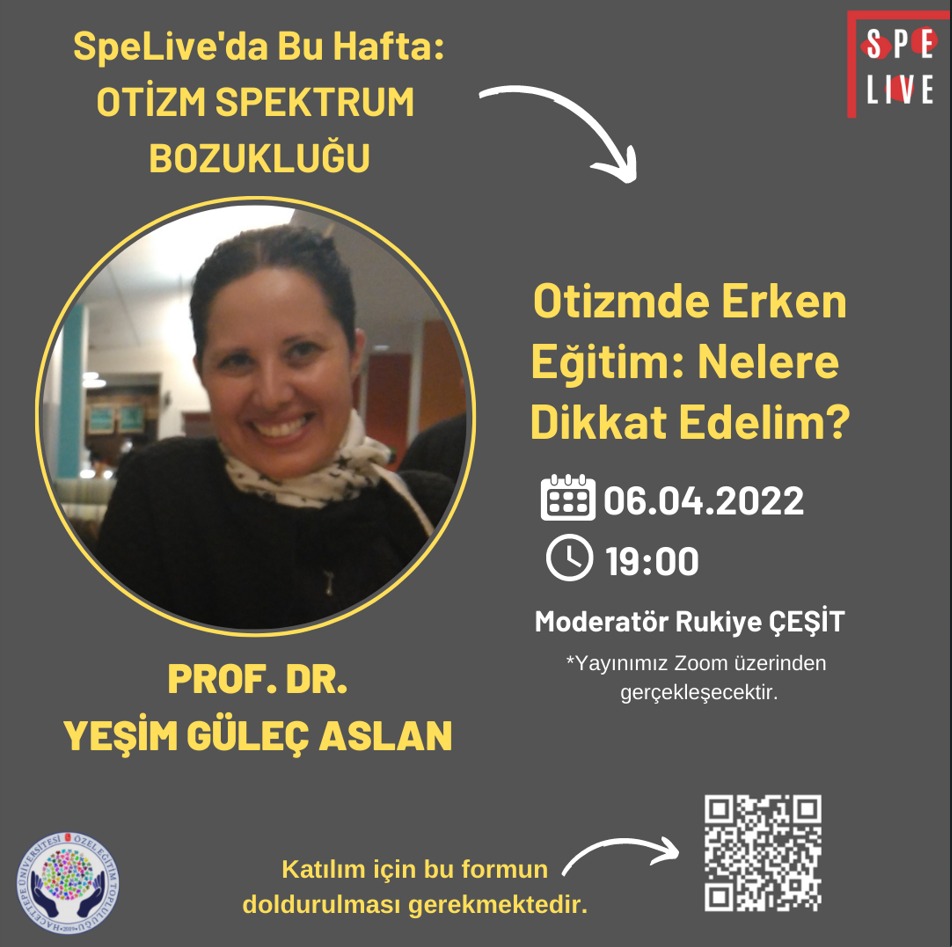Prof.Dr.Yeşim GÜLEÇ ASLAN, faculty member at Istanbul Medeniyet University Faculty of Educational Sciences Department of Special Education, held an online seminar for university students on “Early Education in Autism: What Should We Pay Attention To?” on 6 April 2022 as an invited speaker of Hacettepe University Special Education Community s part of April Autism Awareness Events.
In her speech, Prof.Dr.Yeşim GÜLEÇ ASLAN explained the definition of Autism Spectrum Disorder (ASD) as a disorder of individuals with special needs, the importance of early diagnosis and early education, and the basic elements in early education, in the context of community service in inclusive education. She stated that autism spectrum disorder is a neurodevelopmental condition characterized by social and communicative difficulties and limited, repetitive interests and behaviors that are still not fully understood and that its symptoms begin in infancy. She stated that there is no medical treatment for ASD, and that special education is the most promising and positive application for ASD, which affects the lives of individuals negatively when appropriate measures are not taken. She stated that with early diagnosis and early special education, it is possible to achieve lifelong permanent improvements, decrease in the severity of symptoms, participation in society, quality education in the same schools with their peers (inclusion) and increase the quality of life.
She then informed the students about scientifically based practices and applied behavior analysis (ABA), which are educational methods whose positive effects on individuals with ASD have been shown by research. She stated that almost all of the scientifically based practices are based on applied behavior analysis (ABA) and should be preferred primarily because their short and long-term positive effects have been demonstrated by research. However, she added that in cases where scientifically based interventions are insufficient or do not show any positive improvement, practices that do not yet have sufficient scientific basis but are promising, such as developmental-relationship-based practices, picture exchange system and TEACCH, should be used. The main goal is to improve young children in the areas of social and communication, play, academic, social and emotional development in order to reduce the inequalities that stem from individual differences so that they can be educated in inclusive settings. Finally, she presented examples of inclusion studies and activities that can be done together with individuals with ASD.
Prof.Dr.Yeşim GÜLEÇ ASLAN concluded her speech by emphasizing that supporting families and individuals in appropriate ways is not only the duty of educators, but also a social responsibility and that it is important to accompany both individuals diagnosed with ASD and their families on their extraordinary journey by providing professional and moral support.


